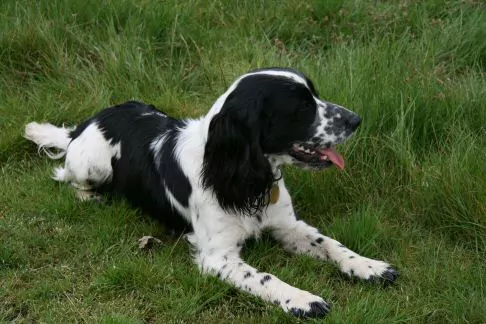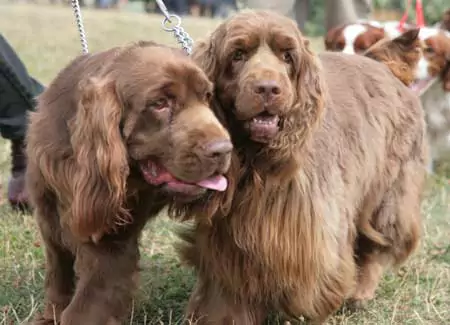Should You Spay Castrate (Neuter) Your Dog?
Neutering is the generic term for spaying and castration. Unfortunately we are lied to by many organisation who promote neutering. The downside of neutering can be catastrophic
To Spay or Castrate?
What you Vet may not tell you
If you want a short view of neutering Click (1) Overview Dangers of Neutering

What Hormones are Affected: Do we imagine that the Hormones we are born with are optional extras, like a SatNav in a new car?
All mammals are born with various hormones. Three of the most important ones are Oestrogen, Progesterone, and Testosterone.
All dogs male and female have these hormones. by what degree each hormone is present determines the sex of the animal.
These are commonly called sex hormones and are related to reproduction.
However, they also play a very important role in other aspects of the animal’s well-being. They allow and create physical, social, and behavioural maturity.
Without these hormones the dogs, if immature when the operation is carried out may not behaviourally and physically reach full maturity.
Both physiological and psychological problems can and do occur because of these early invasive operations
Removing or reducing these hormones must have a profound effect. If you accept that argument then why do you allow people to advise you differently? That includes your Vet and the so called experts
That is anyone that has ever owned a dog or had friends that have owned dogs. You can find these living next to you, in a pub or worst of all in a forum. These are generally fanatical, partisan and know very little about dogs.
The is from the Angry Vets: Spaying and neutering not only potentially shortens the lifespan but also has been correlated with various illnesses. Obesity (sometimes not even responsive to extreme calorie restriction), osteoarthritis, Anterior Cruciate Rupture, diabetes, hypothyroidism, prostatic cancer, hemangiosarcoma, osteosarcoma, urinary incontinence, urinary tract infection and juvenile vulva. These are just a few conditions that are overly represented in spayed and neutered pets.

Exact figures for the UK are uncertain, It is generally accepted that there are around seven million dogs and nine million cats, which is a 5-year upward spiral for the cats and a slight decline in the number of dogs.
This reflects our changing lifestyle with the trend for smaller housing, staying single and both adults fully employed, this would tend to make a cat an easier option.
As a practising behaviourist and obedience trainer, I am often called to discuss whether the owners should spay or neuter.
I find in general that my male clients (the human ones) get a pained expression and cross their legs in agitation when the subject of castration arises.
They generally have no problem with spaying; it is the castration that causes the concern. Yet the opposite is true from my female clients. Who often tell me that their husbands will not entertain their dog being emasculated. yet they have no problem with the concept of spaying. The information below is from the pro-Neuter anything that moves lobby.
“Neutering make for a better and more affectionate family pet.” “It is a medical fact that spaying and castration can prolong the life of our pets and may reduce the number of health problems in later life.” “Castrating a male reduces the risk of prostate and testicular cancer. They are less likely to develop unwanted behaviour’s such as marking, sexual aggression, and mounting, they are also less likely to escape, roam, or fight with other dogs.”
Nearly every claim above is flawed or incorrect. Many dogs especially females can get more aggressive after neutering. The information we are given is often for financial reasons. To line the pockets of the Breeders and Vets.Some vets recommend that our dogs are spayed or castrated anywhere between 5 to 16 months.
In America, some are being done at 4 weeks and they routinely neuter at between four and six months. Many of the Vets, Trainers, Breeders and Behaviourists in both America and the UK are recommending this course of action.without understanding the numerous problems this advice may create.
Some rescue centre’s such as the RSPCA often spay and neuter as a matter of course, whatever the age.
In fact, I have written an article pointing to the fact that a few of our “Welfare Societies” and “Breeders” are neutering both male and female dogs as young as SIX WEEKS.
The breeders are neutering not for the welfare of the puppies. It is to keep the cost of these dogs artificially high. So that the owners cannot breed from these poor dogs.
This is especially prevalent in some breeders of Australian Labradoodles, and Minidoodles.
May I recommend that you never buy from a breeder that is prepared to mutilate a tiny puppy at this age.
It appears that they have their own financial gain to consider rather than the behaviour and problems, both behavioural and medical of the dogs they are selling on to unsuspecting clients.
What a pity they do not have the health and well being of their pups at the forefront of any decisions. I wish they would start from the oath they swear when first becoming a Vet, which is “FIRST DO NO HARM
| Is your dog pulling on the Lead, Unruly, Bad Recall, Aggressive on Lead, Jumping Up? See my article and Video Clips on how to stop this. The Jingler |
I know of a case where the breeder sold siblings (two dogs from the same litter) which on its own is a recipe for disaster. Something very few good breeders would ever recommend. See “Siblings the Worst of Both Worlds”
But to compound the problem, the breeder neutered them at six weeks. The buyer was warned but chose to ignore that advice.
It is not just the owner that will suffer. As these poor little dogs start to grow and start to reach maturity. They will become more and more anxious, distressed, and frustrated.
It is these poor dogs that will be impaired for the rest of their lives, both physically and mentally.
It is an absolute travesty that we can allow these people to do this to young pups.
I have recently heard that at least one of these siblings has Hip Dysplasia. One of the main reasons veterinary oncologists advise against neutering when very young.
Yet the owner of these siblings has been on forums praising the breeder. stating her dogs were perfectly healthy.
She is typical of many I see that cannot accept that they were wrong, and are willing for others to ruin their dog’s lives. Unfortunately, it is the dogs that suffer the most. not the owners
What happened to the five freedoms under the Animal Welfare Act of 2007. Number three of the five freedoms states. “The need to to exhibit normal behaviour patterns” How can these poor pups exhibit normal behaviour patterns when they have had this start in life.?

Grave Concerns:
I have some very serious reservations about neutering even at six months, but to inflict this on a tiny puppy at six weeks is ludicrous.
I believe that for the behavioural health of our dogs this advice and practice must stop.
See the RSPCA article, and my blog that explains what the Breeders are doing.
There have been numerous scientific studies on the beneficial outcome of neutering, especially on a physiological level. But none I can find on a psychological and behavioural level.
I noted some twelve years ago that the incidence of frustration, lack of attention, and puppy-like behaviour, appeared to be far more prevalent in dogs that were castrated and spayed at a younger age.
Those that were allowed to mature naturally before performing this operation were not affected in this way
I also observed that bitches spayed too early, may be far more interesting to intact males; unwanted male attention can cause the female to become aggressive and protective of this attention in adulthood.
I asked the members of PAACT “The Professional Association of Applied Canine Trainers”. To monitor the dogs they were treating and to record the age they were spayed and neutered. Their feedback bore out all my initial findings.
When Should We Spay and Castrate?
With regard to castration, I believe that males should not be castrated until they have been cocking their leg for at least three months, and should be at least 10 to 36 months of age (depending on size and breed). The larger the breed then the later they mature.
For instance, a German Shepherd would be much later than the 10 months stated. Probably more like 18 months. Unless of course there are medical or serious behavioural issues to take into consideration. Irish Wolfhounds and giant breeds up to 36 months.
In females, I believe that they should have at least one season if they are a very small dog; but preferably two or three. If they are a large dog then at least three seasons. Then wait approximately 3 months after the season before considering spaying, allowing the internal organs to settle down after the season.
See my article on Information Regarding Seasons in Female Dogs

Aggression:
It has also been observed that young female dogs that show aggressive tendencies towards owners, especially before the age of six months; often demonstrate increased aggression after spaying.
Spaying removes the production of progesterone, which is a natural calming hormone and a Serotonin uplifter. Spaying may, therefore, escalate any observable aggressive behaviour, either to humans or other dogs.
Despite popular belief, spaying does not calm a female dog down. It may help to calm certain behaviour’s in males, but not female dogs. How could it when you are removing hormones that raise serotonin? Which is a calming agent for the brain
Many vets and rescue centres will neuter a male dog before they have cocked their leg. It is at this point dogs start to seriously mark territory. Not the half-hearted attempts we see in immature dogs. The immature castrated dog may squat for the remainder of its life and may be more interesting to intact males.
There appears to be a testosterone surge at between 10 and 24 months depending on breed and size, which clearly turns on a dormant hard-wired programme that establishes this cocking behaviour. Male dogs also produce Progesterone.
Progesterone and testosterone switches on many of the hard-wired behaviour’s we see in maturity and are not isolated to just one action, therefore other functions that are not so obvious may be switched on at this time.
These may have social implications and behavioural effects that aid in the development of dogs psychological and physical growth. If we switch these off by neutering or castrating too early, we may be denying the opportunity achieve both mentally and physically the dog’s full adult potential.
Progesterone receptors are found in brain cells, in nerve sheaths and in bone cells, In both male and female dogs. indicating that progesterone is involved in their function. It also appears to be involved in a range of other biological activities. Therefore, neutering before both physical and psychological maturity may have numerous other long-term detrimental effects.
Many dogs that have been neutered early, appear to retain far more juvenile characteristics than those neutered when mature. In other words, they retain perpetual puppy like characteristics, whilst this may appear to be initially endearing, who would really want a dog that shows low concentration levels and frustrated ppuppy-likebehaviour for the remainder of its adult life?
Can it also cause physiological problems?
Because early neutering removes sex hormones, this delays maturation of “osteoclasts” resulting in the delayed closing of the growth plates of the long leg bones creating leggy taller than average dogs, thereby increasing the risk of some orthopaedic disorders such as cruciate ligaments, hip dysplasia and bone cancer.
Have you heard of ACL it means Anterior Cruciate Ligament That is the ligaments that stabilise the knees? This is one of the most common orthopaedic injuries that are seen in dogs. What is the main cause? It was long believed that it was sudden movement caused this problem. This has now been disproved. Please read THIS
A small portion of dogs suffers torn cruciate ligaments as an injury caused by exertion. The agility, working gundogs and heelwork to music type dogs. However, it is now accepted that the vast majority of the dogs that suffer from this debilitating injury have been neutered.
ACL Anterior Cruciate Ligament and HD Hip Dysplasia is massively on the increase. New Research has now shown that dogs over 4 years old that are spayed or castrated are considerably more likely to suffer cruciate tears and hip dysplasia than dogs that are not neutered
It was long believed that eunuchs (castrated humans) were castrated to stop them being interested is the ladies of the Harem. In reality, they were used as palace guards, because of the effect neutering has on the “osteoclasts” these eunuchs were therefore appreciably taller, making them more imposing as guards and soldiers.
That must put enormous strain on the joints and hips.
It has been observed that Spaying can significantly increase the risk of urinary incontinence in bitches. Early neutering also increases the risk of urethral sphincter incontinence in males (A. Aaron et al., Vet Rec. 139:542-6, 1996.)
In Conclusion: I am not totally against neutering, but at the right time, for the right reason, to the right dog. Never before physical and mental maturity. Allowing your dogs to reach full maturity in both body and mind is absolutely vital for our pets well-being.
I believe that a full psychological and physiological set of tests and experiments should be scientifically undertaken to study the effect of early castration and spaying on all our animals, not just dogs and cats.
These findings though purely observational, have also been borne out by observation and experiences of behaviourists and trainers who are members of PAACT “The Professional Association of Applied Canine Trainers” An organisation dedicated to enhancing and bringing together the two main canine disciplines of obedience training and behavioural therapy. It is PAACT’s belief that to be able to work with dogs on a professional level, you need to be versed in both of these disciplines.
I was asked by many people to write an in-depth article on neutering dogs which explains in far more detail the surgical procedures, risks, and what the hormones that we remove by this procedure, And why those hormones are there for, what they actually do and their importance. Click Neutering Dogs In Depth
This article was written by.
Stan Rawlinson MTCBPT. MPAACT Adip.CCB
www.doglistener.co.uk
Chairman and Founder Member
Professional Association of Applied Canine Trainers.
My thanks to Ron Hines DVM PhD for his information on Cruciate Ligaments and his in-depth article on Early Neutering
(1) Overview Dangers of Neutering
Leave a Reply Cancel reply
You must be logged in to post a comment.









Comments (10)
Hormone changes in my 2 year old
My 2 year old (intact) dog has just started running off whilst out walking. His recall has never been perfect but now he blatantly ignores me and goes in his own direction. I didn’t want to have him castrated but it seems that this may be the best option now. I also have a 6 month old puppy who has just started showing signs of puberty (ie humping my other dog). I wondered if the raised testosterone in my puppy might be influencing my 2 year old?
I am not sure castration is the answer?
I am not sure castration is the answer to recall problems. As it happens in you type in Recall Training into Google I come first.
If he is running off after bitches on heat then there is an argument for castration, however, if he is running off because he wants to hunt then neutering will have no effect.
Torn about neutering
Thanks for your article. You express much of what I’ve been pondering. Not sure neutering is the path we will take with our Labrador male. We had two growing up, neither neutered, neither had behavior problems, neither roamed, and both lived to 11. Studies also show that neutering increases the incidence of leukemia and lymphoma which counters the benefit of prostate cancer. Humans get prostate cancer and 90% die of something else. Maybe with a dog, you also try prostitectomy, then oral oncolytics late in life rather than castration at a young age. Dean Gould
Prostrate Cancr and Neutering
Hi, Dean Thre is some serious misinformation by the pro-neutering lobby. One of them is regarding neutering alleviating the risk of prostate cancer. Dr Hahn a leading expert on veterinary cancers states “prostate cancer” lot of people erroneously believe that castration prevents this. In reality, it does not. In fact, castrated dogs have up to 4 times greater risk of developing prostate cancer than intact animals. This lie is promulgated by people that have a pecuniary interest in neutering dogs. Most of them are Vets.
Should I get him neutered?
I like your blog as it seems very fair showing the negatives of neutering compared to other sites just promoting it! I have a bedlington terrier, just turned 2 years who has very recently started to chase bitches in season, humping pillows at home and his behaviour has got a generally worse. I was against getting him neutered as he isn’t aggressive and I didn’t want his personality to change he’s a typical cocky terrier! Would neutering help with this? Twice now he has chased a bitch in heat off out the park next to a main road and I don’t want him getting hurt…but don’t want to do more damage than good in getting him neutered! Advice would be welcome.
Should I get him neutered
The problem is not with your dog it is with the idiots that take their female dogs over the park whilst in season. The humping is generally and learned behaviour and can be stopped quite easily with training aid such as the Jingler and the OFF command. If set strong enough it can even deter in some cases the chasing of bitches on heat. THough that is a strong instinct.
Castratikn
Hi my two year old boxer has recently started displaying dominance over other digs out on his walks. We haven’t had him castrated as we were trying not to if possible. Up until recently he has been a very friendly playful dog but over the past few weeks he’s become more aggressive more frequently. We are now considering castration. Do you think this would help or are there other methods we could try first?
Two year old Boxer
Hi, It may not be hormonal therefore neutering could make it worse. There are two types of chemical interventions that temporarily neuter you dog then revert back to normal the are TardaK and Suprelorin. You can read about them by following this link to my article explaining what they do Neutering Dogs In Depth
Thank you!
We have a 9 month labrador and i was thinking about having him neutered but after reading your blog will definately wait for him to mentally and physically develop giving him the best chance of living a happy healthy life. We had a westie and had him neuteured very young and he behaved like a puppy all his adult life and passed away at 11 with lymphoma. Thank you again for helping me make my mind up for my labrador xx
Neutering
I have two Jack Russell puppies my lad is 10 months and my lass is 4 months so it is fast coming to the time when they could breed. They are uncle and niece by breeding and so i do not want them to have puppies at all but anyway i think they would be too young. My question is should i neuter one or the other or both as suggested by my vet. Or separate them while my lass is on heat. This would upset them as they are very close. but my lad is already a humper so i am worried. This is about their health and happiness not mine or behaviour.